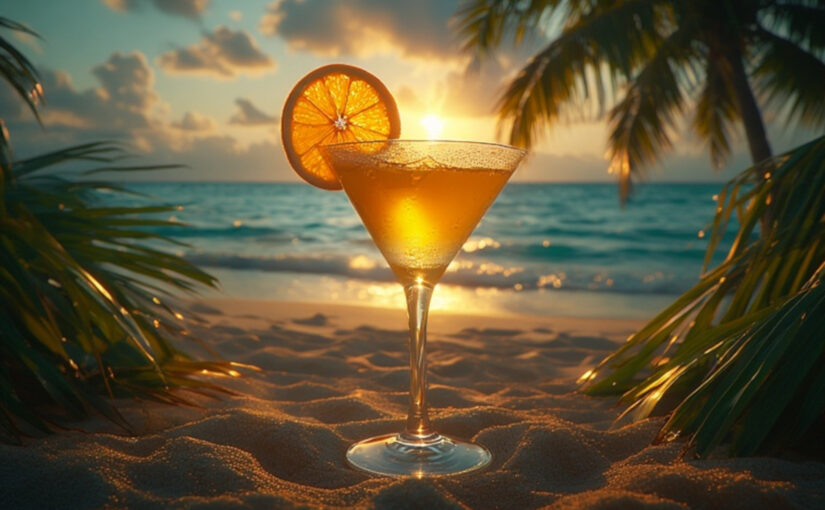The Paradise Cocktail evokes the feeling of a serene garden at sunset, a moment where golden light lingers and time seems softer. Created with gin, apricot brandy, and orange juice, it’s a cocktail that balances playfulness and sophistication. With just a splash of lemon to lift its brightness, this classic drink lives up to its celestial name, offering a taste that feels indulgent yet airy.
✨ What Makes the Cocktail Unique?
Paradise is a cocktail of harmony. The aromatic boldness of gin plays off the gentle sweetness of apricot brandy, while orange juice brings richness and natural freshness. The result is a silky texture with layers of citrus and stone fruit. It’s a drink that feels both classic and distinctive, simple yet powerful enough to leave an impression.
📖 Recipe
Servings: 1
Time: Under 3 minutes
Difficulty: Delightfully Simple
🍹 Ingredients
- 2 oz gin
- 1 oz apricot brandy (or apricot liqueur)
- 1 oz fresh orange juice
- A splash of lemon juice
- Orange twist or apricot slice for garnish
🥂 Preparation Steps
- Fill a cocktail shaker with ice.
- Add gin, apricot brandy, orange juice, and a splash of lemon juice.
- Shake until well chilled.
- Strain into a chilled coupe glass.
- Garnish with an orange twist or a slice of apricot for a touch of flair.
🍊 Variations & Tips
- For a lighter version, serve it over ice in a rocks glass with a splash of soda.
- Use freshly pressed orange juice for natural sweetness and full flavor.
- Experiment with different gin profiles. A classic London Dry highlights sharpness, while a floral gin makes the cocktail more aromatic.
🌅 Perfect Setting
The Paradise Cocktail is best enjoyed at golden hour, when the light outside is as warm as the drink in your hand. It fits perfectly at an evening garden gathering, a rooftop toast, or a quiet night in where elegance is part of the ritual. Lift your glass and savor its golden glow. Salute!
📜 The History of the Paradise Cocktail
The Paradise Cocktail has a distinguished past. First recorded in Harry Craddock’s 1930 Savoy Cocktail Book, it quickly gained popularity during the golden age of mixology. The use of apricot brandy reflected a trend of the 1920s and 30s when fruit liqueurs added sophistication and hints of exoticism to classic spirits.
The name Paradise captured the aspirational mood of the era. Between wars and shifting cultural tides, people sought escape through travel, cinema, and cocktails that promised a taste of something elevated. Paradise fit perfectly onto the menus of swanky hotel bars where guests longed for a sip of luxury.
Although its fame dimmed later in the century, modern cocktail culture has rediscovered its elegant simplicity. Today, Paradise stands not only as a recipe but also as a snapshot of mixing history: a reminder of how a few carefully chosen ingredients can conjure a world of flavor and imagination in one dazzling glass.
